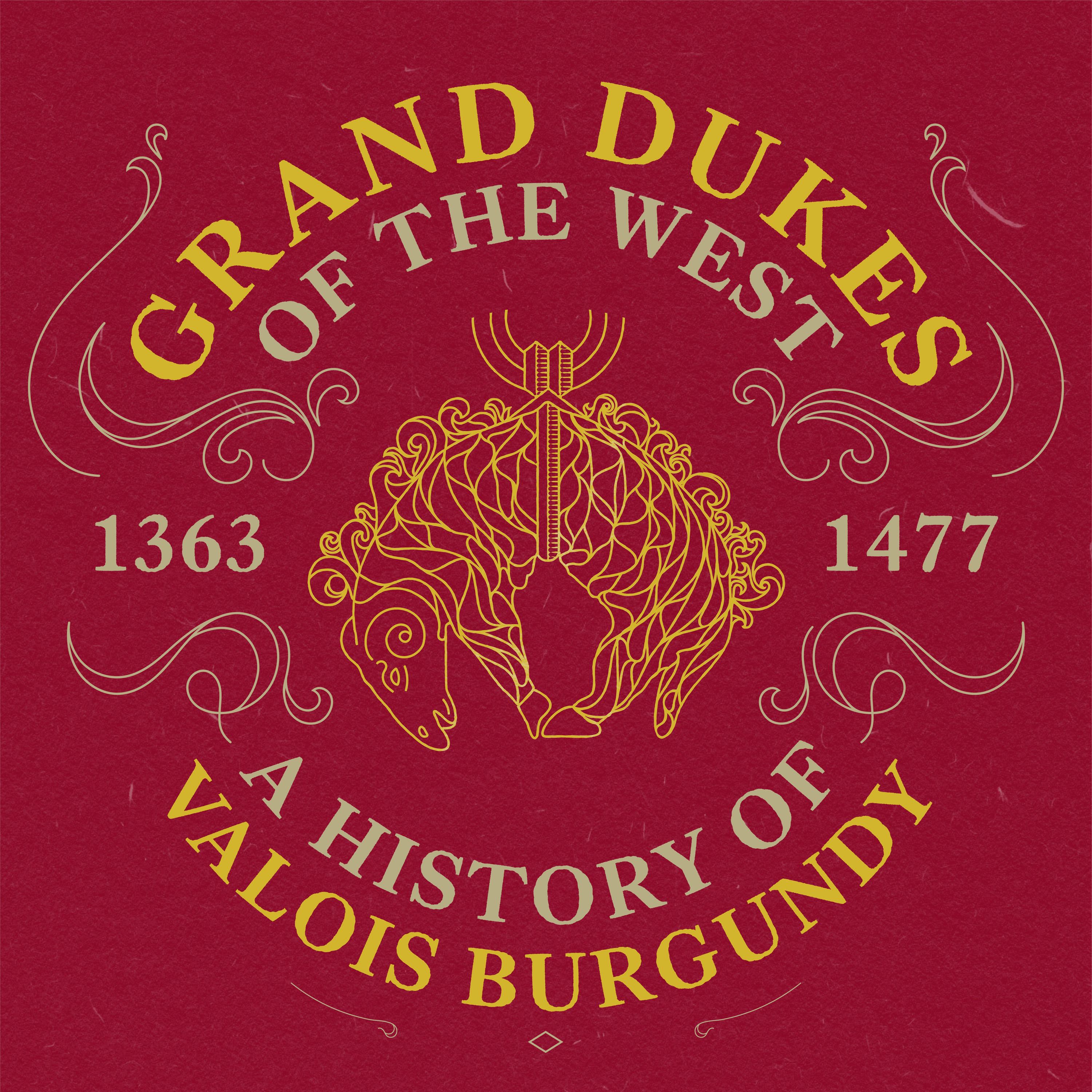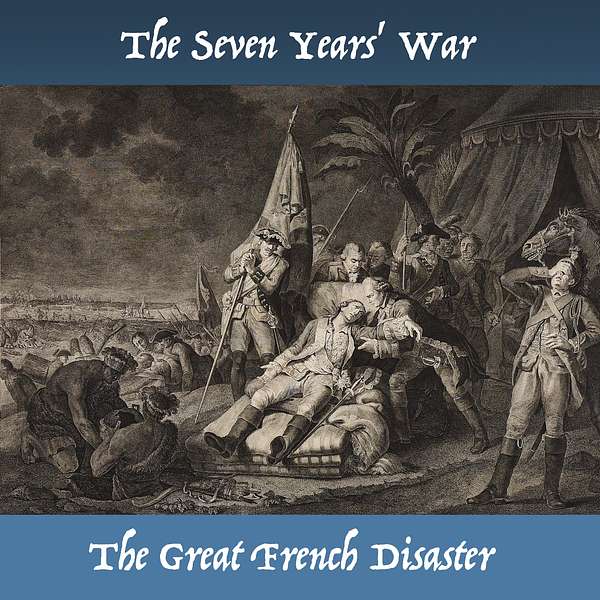
La Fayette, We Are Here!
La Fayette, We Are Here!
The Seven Years' War. The Great French Disaster
Considered by many as the first true world war, it continues to reverberate even today. Join us as we embark on a historical journey, with Louis XV, Madame de Pompadour, the Marquis de Montcalm, and general Wolfe as our guides, to examine "the Great French Disaster."
Introduction
04:18 - The Origins of Conflict
13:21 - From Frontier Struggle to Global War
22:12 - Downward Spiral
28:51 - The Great Disaster
37:46 - Conclusion
Music: Marche pour la cérémonie des Turcs, composed by Jean-Baptiste Lully, arranged and performed by Jérôme Arfouche.
Artwork: The death of the Marquis de Montcalm, by Juste Chevillet, National Gallery of Canada
Recommended link: "The Life and Times of Frederick the Great" podcast by Alec Avdakov
Reach out, support the show and give me feedback!
Let's delve into the world of George Washington, French soldiers clashing with English forces in the North American wilderness, and Native American allies siding with one faction or the other. This narrative might easily be mistaken for the American Revolutionary War, with rebels fighting against the might of British imperialism, aided by the likes of La Fayette and other French soldiers. However, this story unfolds on a grander scale. It takes place during George Washington's youth, while he served in the British King's Army.
This particular conflict goes by multiple names and definitions. While it is globally recognized as the Seven Years' War, it is more commonly referred to in America as the French and Indian War, and in Canada as the War of Conquest. These wars are all interconnected and are part of a vast global struggle between the two superpowers of the mid-eighteenth century: France and Great Britain. Fought across the seas, in America, Canada, Europe, India, and beyond, it is a narrative both captivating and ominous. Unfortunately, it often gets overshadowed by the significance of the American and French Revolutions, as well as the Napoleonic Wars that followed. Yet, this conflict, considered by many as the first true world war, continues to reverberate even today. Join us as we embark on a historical journey, with Louis XV, Madame de Pompadour, the Marquis de Montcalm, and general Wolfe as our guides, to examine what I've dubbed "the Great French Disaster."
Welcome to "La Fayette, We are Here!", the French history podcast for the American public, by a Frenchman! I am your host, Emmanuel Dubois, and today we are talking the Seven Years' War, that global conflict that was fought from 1756 to 1763, at least officially. As we'll see, those dates are somewhat flexible. More on that in a moment. Let me first give you a bit of context
“The bigger they are, the harder they fall”. That saying could very well apply to France in 1763, at the end of this conflict. For France was a mastodon back then. A tremendous military and economic power, with colonies and counters in America, Africa and Asia. A huge standing army, the biggest in Western Europe. A remarkable fleet and a considerable revenue stream to fund all of this. But France will prove to be a giant with feet of clay. At the outbreak of the conflict, and for its first few years, most people would have bet that France would defeat Great Britain in their conflict. But the situation changed drastically, for reasons that we'll soon tackle. And after 1759, France's "annus horribilis" and Britain's "annus mirabilis", it was pretty clear that France was on the losing side. And don't forget, other major European powers also took part in this conflict, notably Prussia, Austria and Spain. We will first explore the cause of this war then it's progression. After that, we will examine its consequences and ramifications to the present day.
The Origins of Conflict
By the mid-seventeenth century, France and Britain had become the two main colonial and economic power. Spain and Portugal were declining in term of relative power whereas the first two were rising in both military and economic power. During the sixteenth and seventeenth centuries the French had colonized the Saint-Lawrence valley, eastern Canada, parts of the Great Lakes, established counters along the Mississippi and another colony in the Southern modern United States known as Louisiana. I will refer you to my August 2023 episode on New France to get all the details on these colonies. The French also controlled islands in the Caribbean, had commercial counters in Africa and Asia, mostly in India. In other words: the French were almost everywhere. The only other European State even remotely close to this was Great Britain, with her colonies on the American Eastern seaboard, and her own counters in Africa and Asia. Both countries had already fought each other many times over these territories, but these had been frontier skirmishes, not full fledged wars.
Only when European politics initiated conflict did the colonies follow suit. During the War of the Austrian Succession, from 1740 to 1748, the European war transposed itself to the colonies, with the colonial American troops taking the French town of Louisbourg in 1745 for example, only to relinquish it at the signature of the Peace treaty three years later. The conflict that interests us today is different, inasmuch as it has its origins mainly in North America, with a major European counterpoint. I know, it's complicated, I'll do my best to clarify all of this for you, mes amis.
Imagine yourself in 1754, in the world that I described earlier. France and Britain are at peace, at least officially, since 1748. But this peace is fragile, hollow. Both countries are at each other's throats for several reasons. Both want to have the economic advantage over the other. That means controlling more territory in North America, making more business with the First Nations, especially regarding the fur trade, as well as making profitable alliances in Europe. Back in the 1740's, France had been allied with Prussia and fought Austria and Britain. In the 1750's, this situation reversed itself. Austria was basically hoping to get her revenge over Prussia for losing Silesia to her during the war, while Prussia itself wanted to protect its holdings in Europe and was getting closer and closer to allying itself with Britain to do so.
In North America, the British feared the French presence all around them. The British colonies were very populated but small in comparison to the French settlements. The French were present north, west and south of the British colonies. This was a very difficult situation to live with and they wanted a way out of this. They also want to expand westward, in the Ohio Valley, to get more from the fur trade. But they face many obstacles.
The first is the French themselves. They have a series of forts and strongholds in the region that allow them to observe and react in case of British incursions. The French colonists live in harsher conditions than the British and are very well used to the harsh conditions of the frontier lifestyle, making them formidable opponents, even if there is a lot less of them. To give you a numerical perspective, in 1750, the French population of New France and Louisiana was roughly 90,000 inhabitants. By comparison, the British population in the Thirteen colonies was over a million and a half. That's over sixteen to one advantage in manpower. However, the French had managed something the British never did: they had many Native allies.
Something is clear in my mind as it was in many French colonists': to win a war against the British in North America, New France would need help from the fatherland, of course, but also from the First Nation peoples. Luckily for them, their predecessors had worked over the last century and a half to establish prosperous relations with them. For the last several decades, many Nations were commercial partners with the French as well as their allies. They exchanged gifts, often lived together and respected each other. This gave the French a tremendous advantage as the First Nation peoples were great warriors who understand the land better than anyone else. Better a small and efficient force than a big and cumbersome one.
America was not Europe. It didn't have the towns and roads to supplies big armies campaigning everywhere. A conflict would have to be fought with smaller contingents, armies that moved fast across the country and took advantage of the features of the landscape. In 1754, the French had a clear advantage over the British in that regard.
From 1748 to 1754, tension had been rising between the French and British colonists. The French built more and more forts in the Ohio Valley to reinforce their positions, supported in their efforts by king Louis XV. The British fear that the French will start invading their colonies and want to push back. In 1753, they send a 21 year old officer to carry a message to the French, asking them to stop their expansion. He is well received by the French at Fort Le Boeuf, close to modern Waterford in Pennsylvania. He is also told that this territory belongs to His Utmost Christian Majesty, king Louis XV of France. The officer carries back the answer to his superiors. His name, is George Washington.
Events escalate in April 1754 when Washington is sent along with 200 men to potentially attack new forts that the French are building under the supervision of Claude-Pierre Pécaudy de Contrecœur. He'd just took a small British position and had begun the construction of Fort Duquenes, near modern Pittsburgh. In May, Contrecœur sends an officer named Coulon de Jumonville to meet the British force and demand their departure. Following a confrontation, Jumonville is killed by Washington' native allies. Jumonville Glen in Pennsylvania is named after the French ensign.
Jumonville's brother pursued Washington to a position named Fort Necessity where he captures the young British officer. He forces him to admit that Jumonville had been assassinated, contrary to the rules of war. Washington didn't commit that crime, nor did his allies. In their perspective, they were doing the logical thing in a victorious battle, claiming their due. Killing Jumonville was not an act of cruelty, it was simply part of war. Nevertheless, the French didn't see it that way, nor did the British for that matter, and the former condemned the latter for this action, judging it a crime. A huge powder keg had just been ignited.
From Frontier Struggle to Global War
The events I just talked about are considered the beginning of the War of Conquest, but to me they are more than that. They are part of a broader conflict that will become the Seven Years' War. That name is deceptive, as you are now seeing, because it encompasses multiple theatres of war who actually span over nine years. The crisis aggravated in 1755, with both France and Britain, sending reinforcements and preparing for further battles. Ships clash in the Atlantic Ocean, forts are taken and destroyed. And in early 1756, a French officer is chosen to lead the military effort of the kingdom in North America: Louis-Joseph de Montcalm, also known as the Marquis de Montcalm. We will circle back to him very soon.
While all this is happening in America, the European diplomatic stage is burning. As I mentioned, the 1748 peace was fragile and unsteady. Most courts are expecting a new war, although, at first, the French king Louis XV tries to prevent it. But he is facing an impossible situation. Not only is his empire clashing with the British in North America, the various European powers are at each other's throat. Also, Jummonville's dramatic death in 1754 forces the king's hand, as Britain is seen as barbaric and cruel by the French public.
1756 is a crucial year in our story. It sees what is nicknamed the "Diplomatic Revolution". For centuries, France and the Habsburgs had been enemies, you know that if you listened to my episodes on François I and Louis XIII and Richelieu. But the young Austrian Empress, Maria-Theresa, wants to make peace with France. She hopes to reinforce her position and, possibly, to retake Silesia, lost to Prussia, in the precedent war. She contacts king Louis XV though an intermediary, the Marquise de Pompadour, the king's former mistress and one of his closest advisors. France and Austria sign a pact of neutrality towards each other, with a secret clause. If one country was to be attacked, the other would come to his aid.
While this is going on, Prussia, who was until then France's ally, feared diplomatic isolation. Her king, Frederick II, decided to sign another neutrality treaty with Britain, similar to the one signed by the French and Austrians. The British had indeed cause here, as their king George II, a Hanoverian by birth, was also duke of Brunswick-Lunebourg. Finally, Russia opposes Prussia's extension, and so do Sweden and Poland. This diplomatic circus is very reminiscent of the situation in 1914 that blew in everybody's faces. The fuse had been ignited by Washington and Jumonville, but its fire had now crossed the Atlantic and the European powder keg was about to explode!
So lets sum things up. France, Austria, Russia, Sweden and Poland are on one side, Great Britain, Prussia and Hanover are on the other. The French and their allies have bigger armies and more populous countries. But the British have the bigger navy, which had already seriously impeded the French in 1755, and the Prussians had the finest army in Europe. Although on paper France was on the stronger side, time would prove that quality can definitely overcome quantity. That and money, lots of it.
Facing this, France decides to take the initiative. The French attack the British base at Minorca, taking it in April 1756. War is declared soon after and Europe is ignited in its entirety. Montcalm follows suit in August, capturing and destroying Fort Oswego on the south shore of Lake Ontario. Finally, there is a third theatre of war: India. Both the French and the British have commercial counters and missions on the Indian coast. Knowing what was going on in Europe and America, both sides had been preparing for war since 1754, ready to jump into action.
The first couple of years prove to be very successful for the French armies. In Europe, they manage to push the Prussians out of Bohemia in 1757, after they'd invaded it in the previous months. In July of the same year, they beat an Anglo-Hanoverian army at the battle of Hastenbeck. Their Austrian allies don't do as well, being beaten by the Prussians at the battle of Lobositz in 1756 and never retaking the initiative, despite a great victory at Kolin, next to Prague, in June 1757. The arrival of more French troops in Germany, as well as Russian and Swedish forces, put the Prussians in a terrible situation and Frederick II was very nervous. He feared not only of losing the war, but of losing his country and possibly his head! Austria and Russia would very much like to dissolve Prussia, a growing thorn in their respective sides. But fate would not have it, as we shall soon see.
In America, Montcalm is a successful commander, leading French soldiers and Canadian militia to a series of victories against the British. He is also helped by the French allies, the First Nations. Their contribution is crucial, especially on the tactical level. The French needed them, and the Canadians, that is the French subjects born in New France, acknowledged that. Montcalm, being a purely French officer, is not so sure about that. He's an excellent commander, one with some experience in guerrilla warfare, useful knowledge under such circumstances, but he doesn't understand how the First Nations and their people operate. To him gift-giving was useless and allowing their warriors the spoils of war, traditions like scalping, was forbidden. Governor Pierre de Rigaud, Marquis de Vaudreuil, the man in charge of New France, opposed him in this, but to no avail.
If the years 1754 to early 1757 proved successful for the French in every theatre of war, except on the seas, the next few years would prove disastrous. The British got off to a slow start but their financial stability and the remarkable quality of their navy will soon prove to be deciding factors. On the continent, their Prussian allies will accomplish the impossible under the leadership of king Frederick II, who will definitely earn his title of "The Great" in this period. Finally, in India, the French forces won't be able to contain the British onslaughts, for much longer. France was about to lose what most powers never even had: an Empire.
Downward Spiral
The first major blow comes in November 1757, at the Battle of Rossbach, in modern eastern Germany. There, the Prussian army defeats a Franco-Austrian force twice its size, reversing the tactical situation and possibly saving Prussia from invasion. But the biggest consequence is moral. The French army was humiliated and for good reason. The battle had been lost as much by Frederick's qualities as by mistakes of the French commander, Monsieur de Soubise. The repercussions trouble the court in Versailles, as de Soubise was a close friend to Madame de Pompadour. For this, the Marquise is ridiculed by the various French intellectuals, including Voltaire, who was actually friends with the king of Prussia. Let me read you the beginning of a poem written most probably by Voltaire to mock Madame de Pompadour. Quote:
"Si vous vous contentiez, Madame,
De rendre le roi fou de vous,
L'amour étant l'affaire des femmes.
Nous n'en aurions aucun courroux,
Comprenez-vous?
Mais depuis quelque temps. Marquise,
Vous voulez gouverner en tout ;
Laissez-moi dire avec franchise
Que ce n'est pas de notre goût.
Comprenez-vous?"
Or in English:
"If you were content, Madame,
To drive the king crazy with you,
Love being women's affair.
We would have no anger about it,
Do you understand?
But for some time now, Marquise,
You want to rule in everything;
Let me say frankly
That it is not to our taste.
Do you understand?"
End quote. If the situation was terrible for the king, the marquise and France globally in Europe, it was also turning sour on other theatres of war. The Royal Navy was preventing France from sending reinforcements and goods to America. New France was basically on its own, while the Thirteen colonies were getting regular reinforcements and supplies. Plus, as I mentioned, Montclam was slowly alienating his native allies. Soon, they would basically drop him, making him lose the only advantage he had over his foes. Of course, he would not recognize this loss, but the facts of war would prove him wrong, as we'll see.
Only a few weeks after the terrible defeat of Rossbach, Frederick II would inflict another humiliating one to the Austrians at the battle of Leuthen. This time, he routs the Austrian imperial army completely. Russia and Sweden were still dangerous for the Prussian king, but the Austrian forces were humiliated, exhausted and defeated. Maria Teresa was contemplating disaster, while Frederick was on his path to glory. If you wish to learn more about this aspect of the conflict, I encourage you to listen to the podcast "The Life and Times of Frederick the Great" by Alec Avdakov, it is truly a great resource.
Over the course of 1758 and 1759, France's annus horribilis, the French kingdom will experience crushing defeats everywhere. I won't delve on the battle themselves, that would take hours and this is not a military history podcast. I will however give you an overview of what happened in America, Europe and Asia, all leading to disastrous consequences for France.
First, let's look at America. If the first operations led by Montcalm proved very successful, the British regained the initiative for various reasons. As I've mentioned, the Royal Navy was doing a good job in preventing France from helping her colonies, leaving them on their own. Literally thousands of French sailors and soldiers were captured at sea during the course of 1758, all but destroying French overseas capabilities. The final blow will be struck at the end of 1759, as we shall see. On the continent itself, Montcalm had made the mistake of alienating some of his native allies, losing a major tactical advantage.
The British were able to make beautifully executed campaigns, providing supplies and troops by sea and marching trough land to push the French back. The crucial town of Louisbourg falls in 1758, followed by the end of 1759, by Fort Duquesne, Fort Niagara and other major fortifications. It was clear what the next objective was, the heart of New France: Québec City.
I go into greater details in my episode on New France, but suffice to say this. In September 1759, the recently appointed British general James Wolfe manages to force Montcalm into an open battle on the Plains of Abraham and the French are utterly defeated. Both commanders die following the battle, but the result is the same. Québec falls into British hands, effectively decapitating the French government and war effort in America.
The French keep resisting however, even managing a brilliant victory in April 1760 at the battle of Sainte-Foy, but they fail to retake Québec. Montréal falls to British hands in September 1760. There will be some more engagements over the next couple years, but the battle for America was definitely lost. Britain ruled over New France. The colony's only hope laid in French victories in Europe and on the seas. Sadly, these wouldn't come.
The Great Disaster
If the loss of Québec was terrible for France, it was not the only catastrophe of 1759 for the French. The principal State Minister, Étienne-François de Choiseul, a favourite of Madame de Pompadour, wanted to try invading the British Isles. It was not a new idea, the French had contemplated doing that many times over their repetitive conflicts with the English over the past centuries. One of them actually succeeded, a fellow named William the Conqueror. Maybe you've heard of him. Anyhow, the British Navy of 1759 was not the English fleet of 1066. It was blockading the various French ports and was doing a great job in preventing an invasion. But Britain would never be totally safe while France had a fleet capable of landing a massive army on its shores. In November 1759, it solved that issue.
On November 14th, the French fleet led by Marshal Conflans tries to go at sea and heads for the Bay of Quiberon, off the coast of Brittany. But the British are made aware of this manoeuvre, and their clever commander Edward Hawke, engages a pursuit. The two fleet meet on November 20th and the Royal Navy utterly crushes the French fleet. Hawke used the relative small size of the bay to his advantage, preventing the French from manoeuvring properly. Five French ships of the line are sunk, over 2,500 men are killed. The British have ten times less losses.
While the French are experiencing defeats in America and on the seas, the situation in India is also getting worse. They mount a campaign in 1758 to take Madras, but it proves inconclusive and have to lift the siege in early 1759. The French and British army finally clash in a decisive engagement in January 1760, at the battle of Wandiwash, or Vandavasi. The French troops of Lally-Tollendal are defeated by Sir Eyre Coote and have to retreat to Pondichéry. The French will hold for another year, capitulating in January 1761.
On top of all these military reversals, the financial situation was getting impossible. Britain had much more modern and robust financial system, allowing the British government to borrow money at very low interests rate to fund the war. The French Old Regime economy was not capable of such a feat. So, even though France as a country was richer than Britain, it effectively had less money to pour into the war effort. Blows were indeed coming from all sides for the French.
I think you are getting the trend here, but let me sum it up. By 1761, France had lost militarily in America, in India and in the Atlantic Ocean. Its fleet was all but destroyed, making her incapable of helping her colonies in any way. In Europe, her armies were also facing difficulties. Although the situation was not as bad as on other continents, France itself was not about the be invaded like it will be at the end of the Napoleonic wars, but a reversal of the situation was now impossible. Choiseul and the king knew that and were working on ending the conflict as soon as possible. It was the only way to prevent the French economy from collapsing completely, and also to prepare their revenge during the next war... yes, that's pretty much how they saw the future, from one war to the next.
Anyhow, the diplomats started working to establish a peace treaty, but that was no easy task. William Pitt the Elder was effectively leading Britain during that period. Even though he was opened to establishing peace, he wanted Britain to retain her gains in America and elsewhere, unlike in 1748. Choiseul was, of course, opposed to that, and this made discussing peace.. arduous. Plus, some believe that Pitt wanted the negotiations to be delayed to allow the Royal Navy to inflict further damage to the French Royale, the French navy.
Let's not forget that France and Britain are not the only actors here. Austria, Russia and Prussia are also involved. In fact, despite great successes before, Prussia was facing disaster again in 1760, after defeats at the battles of Kunersdorf and Berlin. But Frederick II would be saved by the gong, or rather by the passing of Russia's Empress Elizabeth in 1762. The new emperor, Peter III, is in part German and an admirer of Frederick's. He immediately negotiates a peace with the King of Prussia and basically saves him by doing so.
Choiseul's last effort to save the situation was by making a Family Alliance with the Bourbon king of Spain to attack the British. But Spain was not the power it used to be and it fails in its military endeavour, losing Florida and Cuba to the British, while the French lose Guadeloupe and Martinique. By 1762, there was no more use in delaying the inevitable. The war was lost, disastrously so. Great Britain and Prussia were to be the grand victors of this major conflicts. France and Austria were to be the great losers. Russia, however, proved that it was now a major player in European politics, and not just in the North and in the East. This new fact will have repercussions in the next fifty years.
In January and February 1763, two peace treaties are signed. The treaty of Paris is signed between France, Spain, Great Britain and Portugal, another ally of Britain. It puts an end to France's involvement in the war but at great cost. She loses New France, most of her Indian possessions, Grenada, Tobago, Cap-Breton, and parts of Louisiana to great Britain. The remainder of Louisiana is ceded to Spain, along with New Orleans. The second treaty is signed in the castle of Hubertsbourg between Prussia and Austria. Austria has to recognize Silesia as part of Prussia forever, and Prussia doesn't have to pay a dime in war reparations. Just like that, France had lost most of her empire and Austria was relegated to the rank of an almost secondary power, vanquished twice by that upstart country of Prussia.
France had not lost everything though. It kept the islands of Saint-Pierre-et-Miquelon in the Atlantic as well as the fishing rights off the coast of Newfoundland. It also kept a couple of commercial counters in India, in exchange for the promise of never sending troops there. It also kept Martinique, Guadeloupe and Saint-Domingue, very profitable islands for sugar production and, sadly, for the slave trade. Therefore, in Choiseul's mind, France was not in such a bad situation given the terrible defeat it had just suffered. But he didn't have the insight that we do. In retrospect, France's defeat in the Seven Years' War is one of the most dramatic and important events of the world's recent history.
Conclusion
Why am I making such a bold statement? It may seem incredibly Franco-centric to affirm such a thing, but let me back this up with some historical appreciation, if you'll bear with me.
Long term, the most remarkable effect of this war is the creation of an Anglophone North America. Even though French culture will not be erased from Canada, it will be contained. French language and traditions will be subjugated to English rule and Canada will become, effectively, an English-led bilingual country. Plus, Canada is to this day part of the British Commonwealth. King Charles III of England is also King of Canada, my monarch, technically. Because of all this, Canada will prove a vital ally for Britain in its wars in the Nineteenth and especially the Twentieth century. Canadian support and war contribution will prove a key element of British success in these wars.
As for America, the direct consequence of the war is twofold. First, Americans will see their taxes go up to pay for the war. At the same time, they will see the British be quite lenient with the French population of New France, allowing them to retain their language, religion and traditions. I'm a bit oversimplifying but these events will create a big resentment that will play into the American Revolution. It's far from the only factor, but it's a big part of it. Nevertheless, when taking the long view, America is part of that Anglo-Saxon juggernaut over the Atlantic World, with Great-Britain and Canada. In the Twentieth century and with the outcome of both World Wars, this will prove to be one of the strongest cultural, economic and military hegemony in history.
As for France, the devastating defeat in the war will have more immediate repercussions. She sees her old rival Britain become the world's foremost power, with an unrivalled colonial empire, a stronger global economy and even better alliances. The French will not be able to bounce economically from the war, although they will get their revenge on the battlefield. During the American Revolutionary war, France proved a crucial ally to the American Rebels. The French Navy, rebuilt under king Louis XVI, will defeat the Royal Navy in different key battles, preventing the British from doing to the Americans what they did to the French twenty years prior. This will also cement a unique friendship on the world stage, between France and America. It will be tested overtime, and almost ceased at some points, but it never broke. To this day, France and America remain allies and partners.
And finally, the Seven Years' War showed the way for the end of the century and for the nineteenth. France, humiliated and indebted, will not truly reemerged from this situation, and it will be one of the causes of the French Revolution of 1789, with the tremendous consequences that we all know for Europe and the world. Russia and Prussia, two secondary powers before then, will be key players in the Napoleonic wars and in the following decades and centuries. Germany will unite in 1867 under the impulsion of Prussia, and Russia will become a superpower in the twentieth century. They are still two of the most powerful and important States on the planet. France herself, will have again some moments of greatness. The Napoleonic era, although terrible and riddle with war, did show France's capacity for both war and statesmanship. Then there will be a very chaotic nineteenth century, with wars, revolutions, civil wars and five major changes of governance.
As Metternich said quote: "when France sneezes, Europe catches a cold", end quote. France sneezed very strongly in the late 1750's and it spread to Europe and even the world. If it had managed to do better in this war, maybe North America would be part French, part English. Maybe Prussia would have been defeated and conquered, maybe Austria would not have continued its spiral downwards that will never stop until the First World War. Maybe, Russia would have taken a very different course. Maybe, the World as we know it today would be very, very different. Thank you for listening, au revoir.
Podcasts we love
Check out these other fine podcasts recommended by us, not an algorithm.
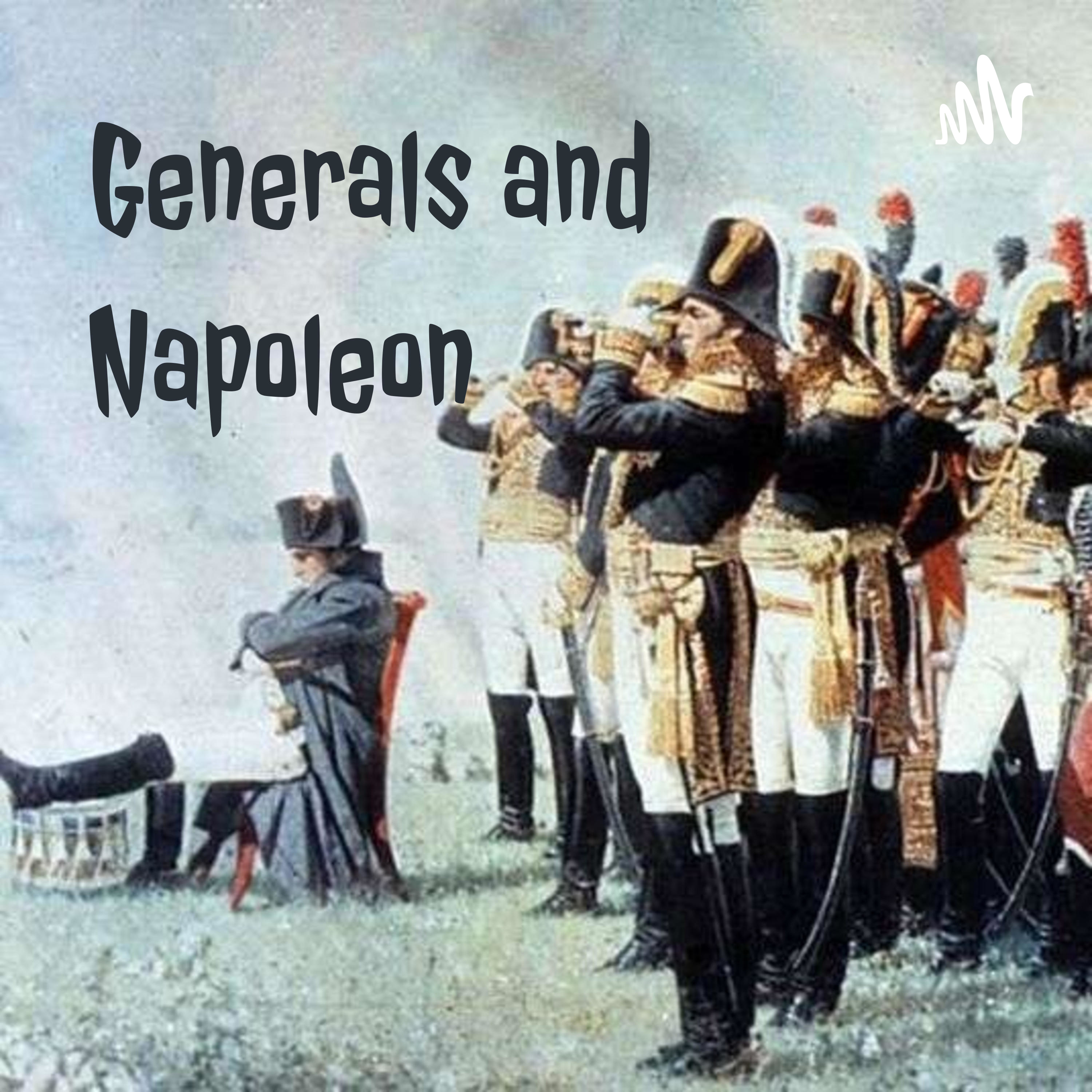
Generals and Napoleon
John W. Viscardo
Shipwrecks and Sea Dogs
Rich Napolitano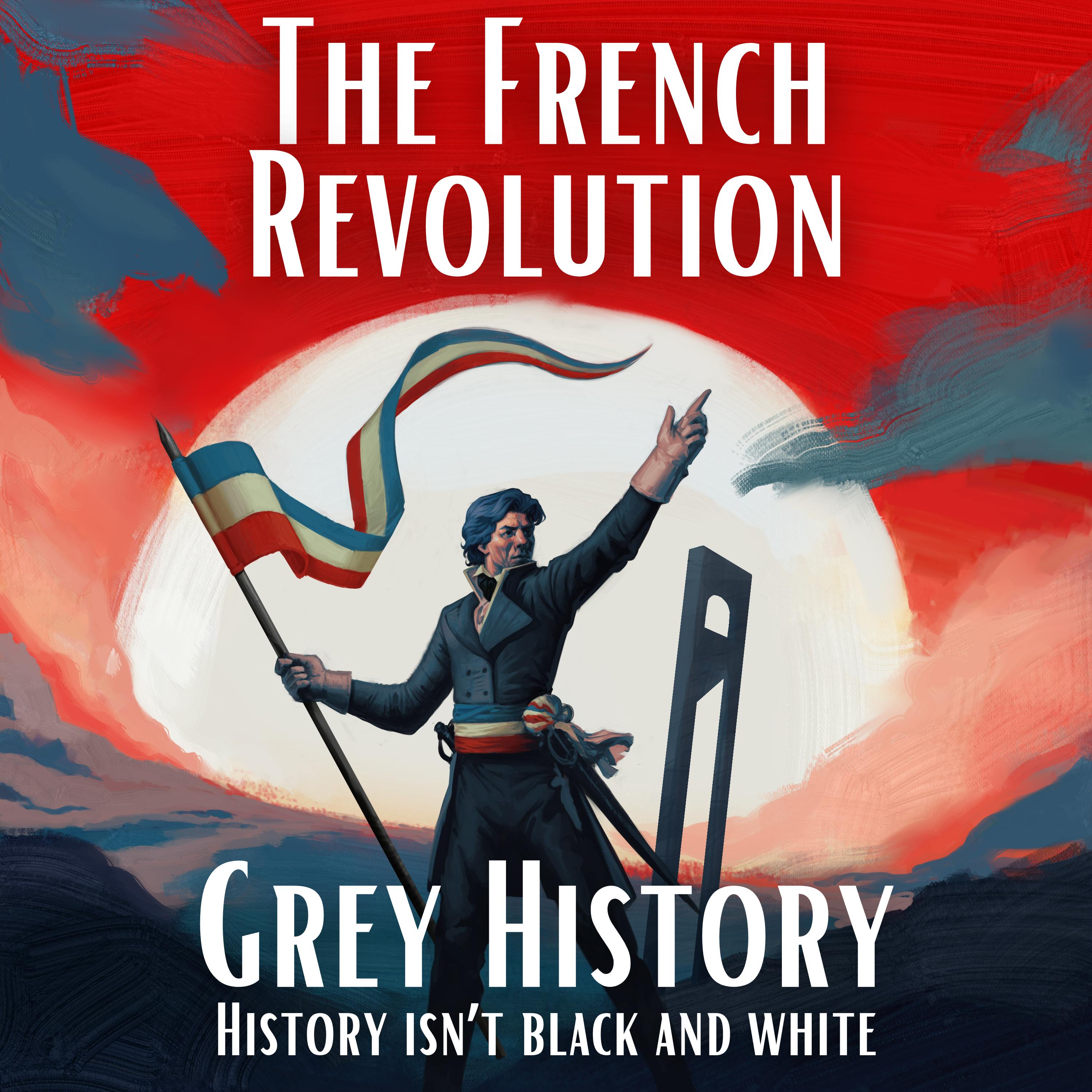
French Revolution & Napoleon (Grey History)
Grey History (William Clark)
The Life and Times of Frederick the Great
Alec Avdakov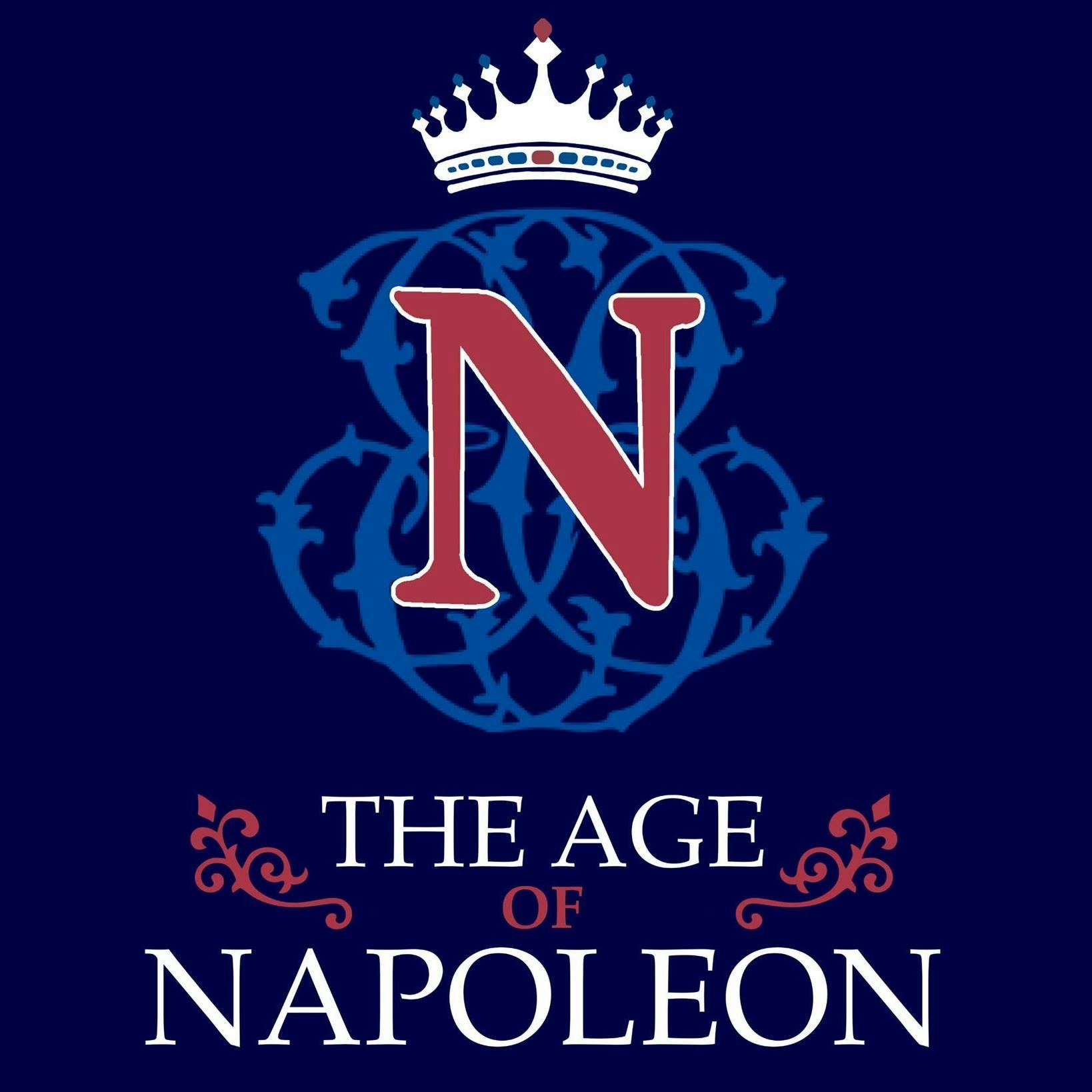
The Age of Napoleon Podcast
Everett Rummage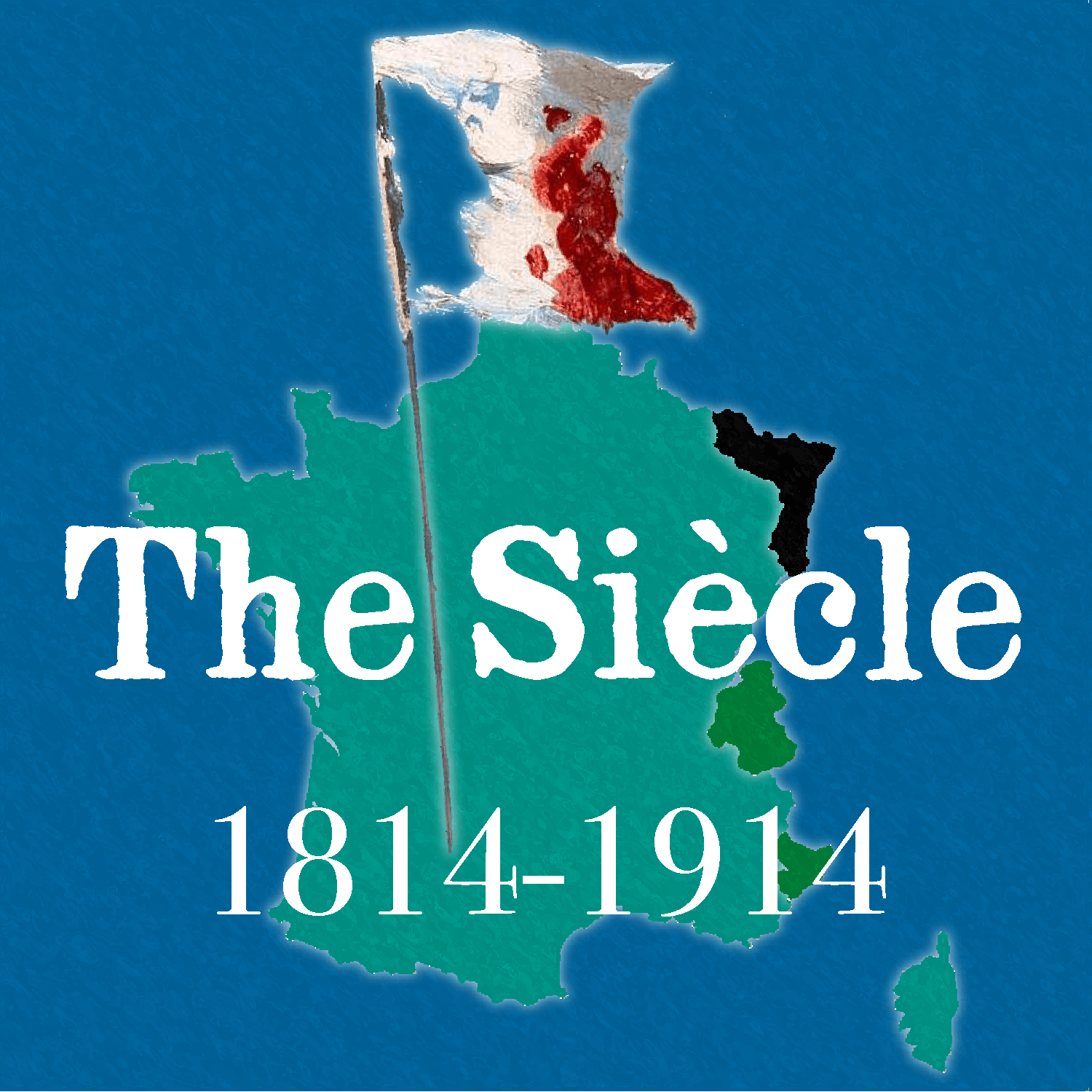
The Siècle History Podcast
Evergreen Podcasts
The Napoleonic Wars Podcast
Zack White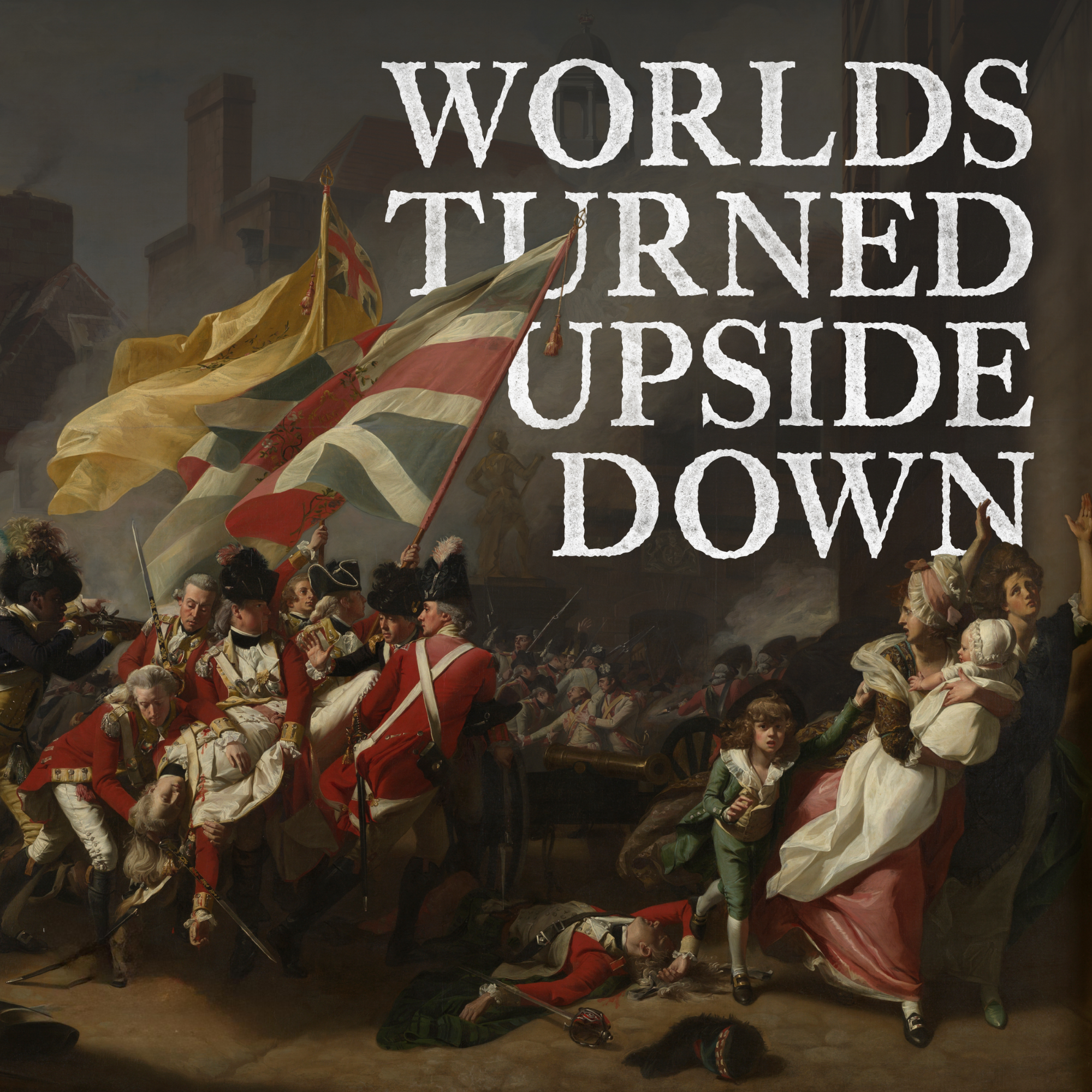
Worlds Turned Upside Down
Roy Rosenzweig Center for History and New Media
Empire-Builders
David Mainayar
Battles of the First World War Podcast
Mike Cunha
New York, Quebec, and The Water Route to the Center of the World
William Matthews
Deep into History
Deep into History
Battle Royale: French Monarchs
Ben Clarke and Eliza Sommers
A History of Japan
Justin Hebert
The French History Podcast
Evergreen Podcasts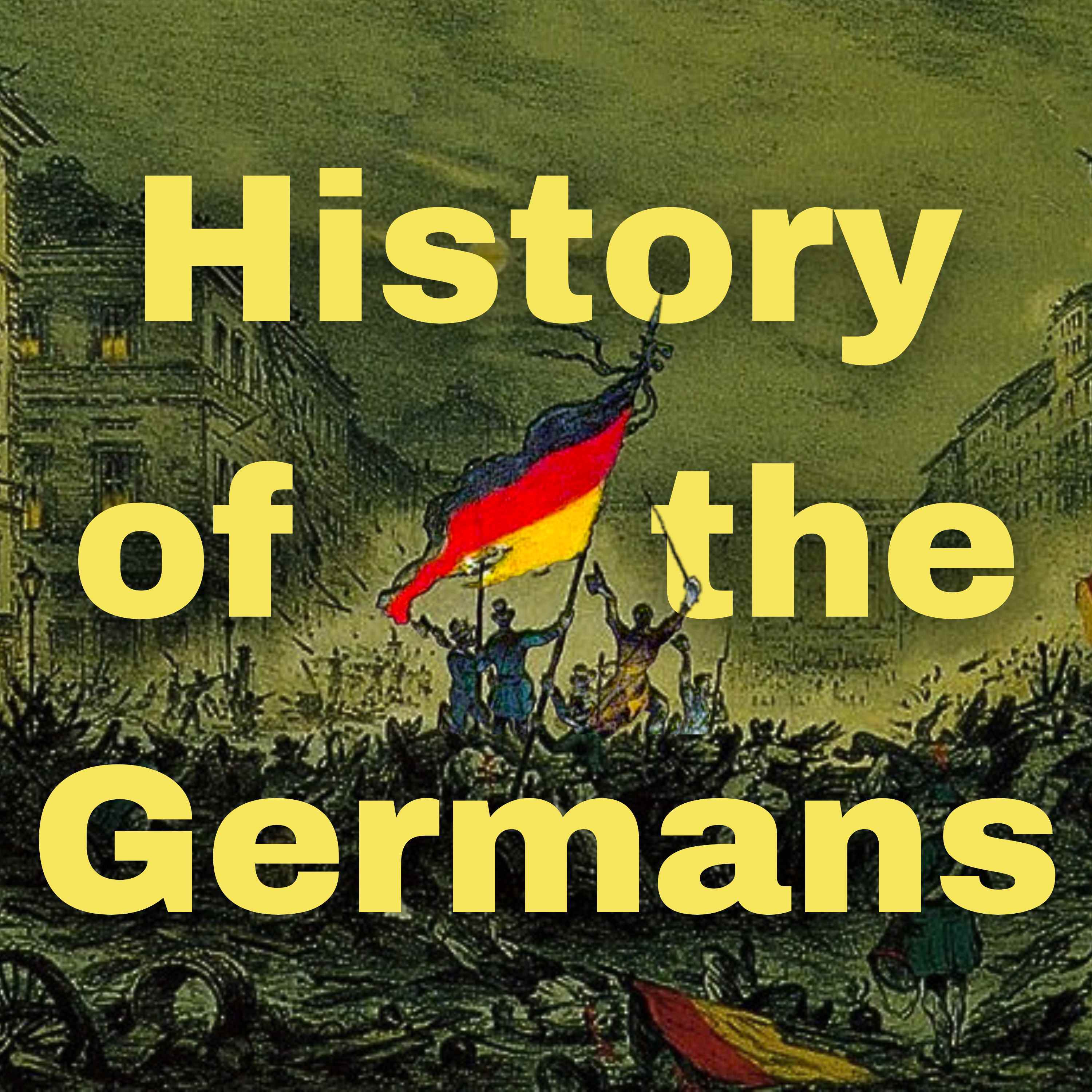
History of the Germans
Dirk Hoffmann-Becking
Half-Arsed History
Riley KnightFrench-Canadian Legacy Podcast
French-Canadian Legacy Podcast
The History of England
David Crowther
Canadian History Ehx
Craig Baird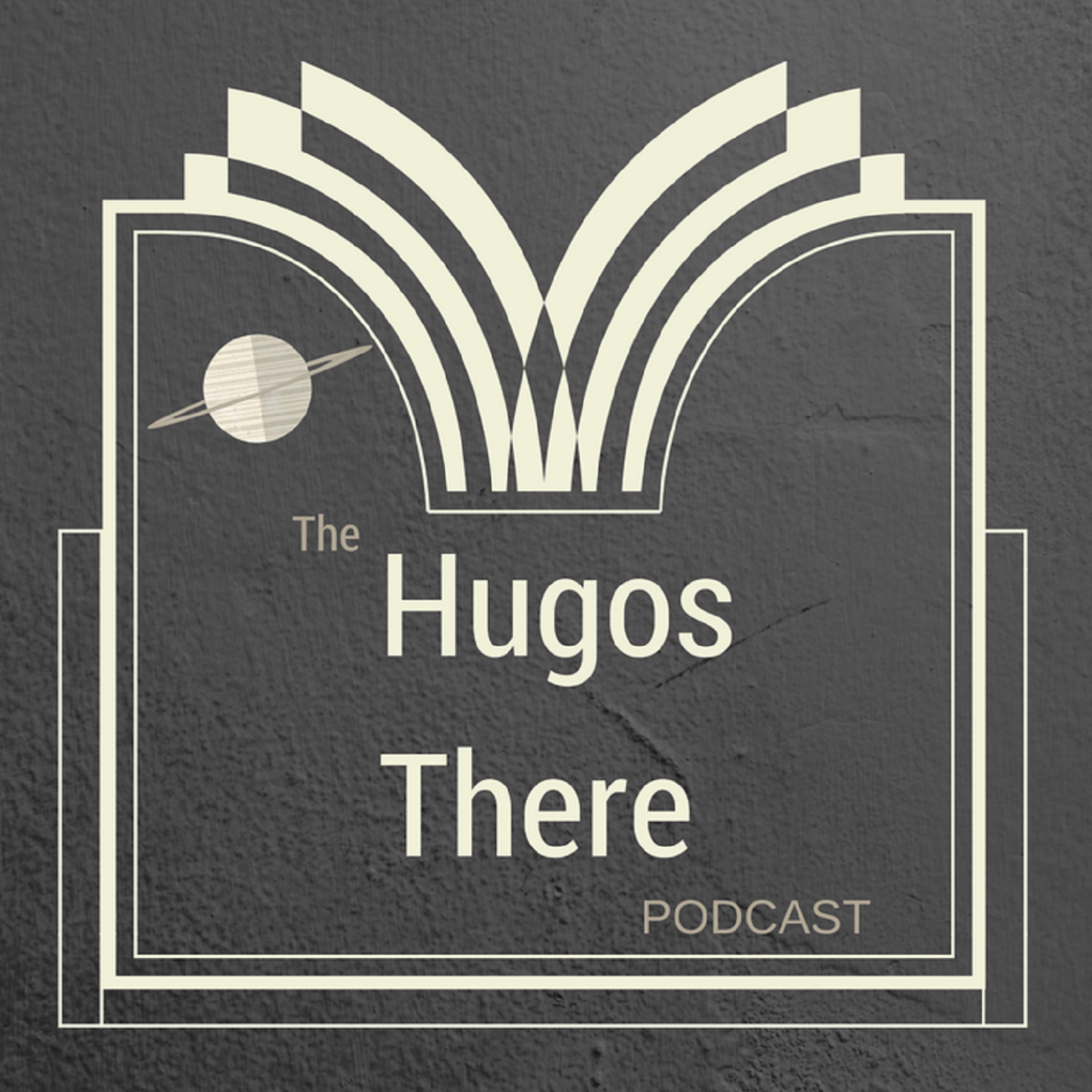
Hugos There Podcast
Hugos There Podcast
Hugo, Girl!
Hugo Girl

